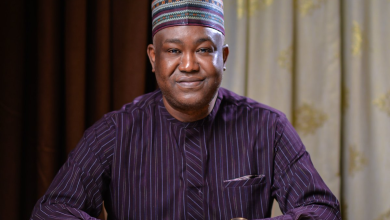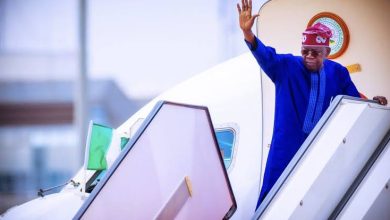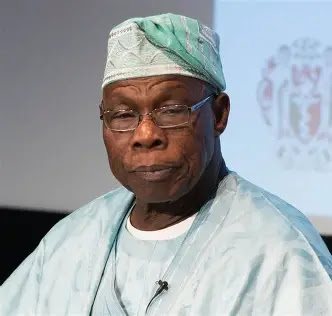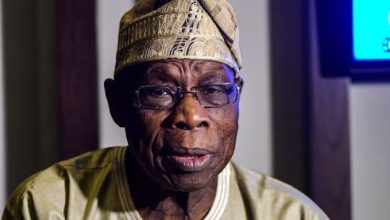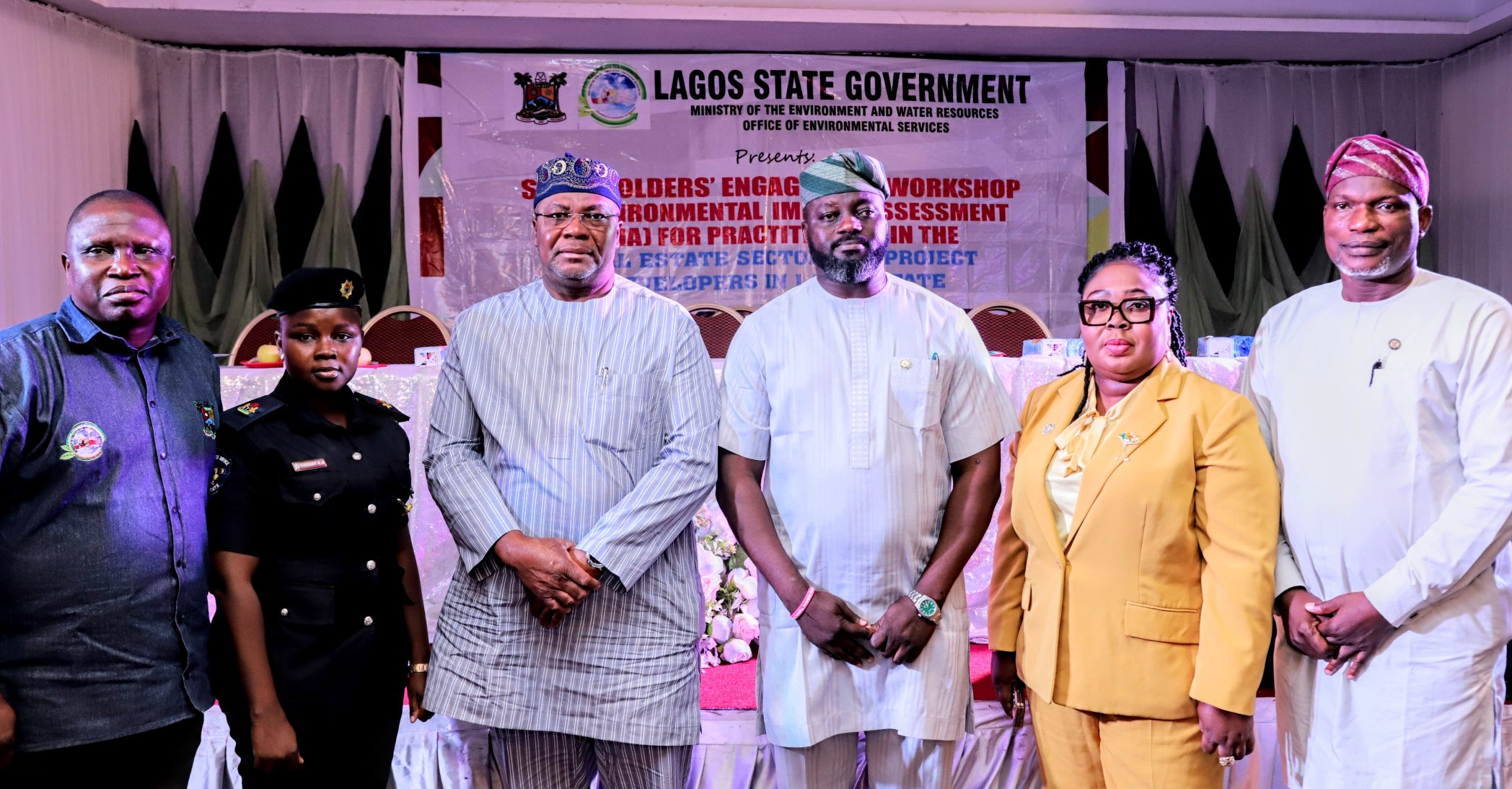The Peoples Democratic Party (PDP), one of Nigeria’s leading opposition parties, has found itself at the center of a heated political debate following its decision to zone its 2027 presidential ticket to the southern region of the country. This move, formalized during the party’s 102nd National Executive Committee (NEC) meeting on August 25, 2025, in Abuja, has been met with strong opposition from some party members, most notably Gbenga Olawepo-Hashim, a former presidential candidate and prominent PDP chieftain. Olawepo-Hashim has described the zoning decision as “unconstitutional” and “discriminatory,” arguing that it violates both the Nigerian Constitution and the PDP’s own principles of fairness and inclusivity. His stance, supported by groups like the Gbenga Hashim Solidarity Movement (GHSM), has reignited discussions about the role of zoning in Nigerian politics, the legal implications of such decisions, and the broader quest for national unity as the 2027 general elections approach.
Background: The PDP’s Zoning Decision
The PDP’s decision to zone its 2027 presidential ticket to the South comes as part of the party’s efforts to reposition itself after a disappointing performance in the 2023 presidential election, where its candidate, Atiku Abubakar, lost to Bola Tinubu of the All Progressives Congress (APC). The zoning resolution was adopted during the NEC meeting, which also retained the party’s national chairmanship in the North, a move seen as an attempt to balance regional representation within the party’s leadership structure. According to PDP Deputy National Youth Leader Timothy Osadolor, the decision reflects a return to the party’s tradition of rotating power between Nigeria’s northern and southern regions, a practice aimed at promoting equity and unity in a diverse nation.
The concept of zoning, while not explicitly enshrined in Nigeria’s 1999 Constitution, has been an unwritten political convention adopted by major parties like the PDP and APC to ensure regional balance in the distribution of political offices, particularly the presidency. The practice emerged in the Fourth Republic (1999–present) as a response to Nigeria’s complex ethnic and regional dynamics, with the goal of preventing the marginalization of any geopolitical zone. For instance, after President Olusegun Obasanjo, a southerner, served two terms from 1999 to 2007, power shifted to the North with Umaru Musa Yar’Adua’s presidency from 2007 to 2010, followed by Goodluck Jonathan (South) from 2010 to 2015, and Muhammadu Buhari (North) from 2015 to 2023. The current presidency of Bola Tinubu, a southerner, is seen by some as part of this rotational arrangement, with expectations that power may return to the North in 2031.
The PDP’s decision to zone its 2027 ticket to the South is viewed by supporters as a strategic move to align with this rotational principle and strengthen the party’s appeal in southern Nigeria, where it faced significant challenges in 2023 due to internal divisions and the candidacy of Atiku, a northerner, after eight years of a northern presidency under Buhari. However, the decision has not been universally welcomed within the party, with critics like Olawepo-Hashim arguing that it undermines democratic principles and could jeopardize the PDP’s electoral prospects.
Olawepo-Hashim’s Critique: Unconstitutional and Divisive
Gbenga Olawepo-Hashim, a North-Central native and a key figure in the PDP, has emerged as a vocal critic of the zoning decision. Speaking on Channels Television’s Politics Today and Arise News, Olawepo-Hashim argued that zoning the presidency to the South is not only unconstitutional but also discriminatory, as it restricts the right of qualified Nigerians from other regions to contest for the presidency. He cited Section 42(1) of the 1999 Constitution, which prohibits discrimination based on ethnicity, origin, religion, or other factors, and Section 7(2)(c) of the PDP’s own constitution, which mandates conformity with Nigeria’s constitutional provisions. According to Olawepo-Hashim, the NEC’s resolution to limit the presidential ticket to southern candidates violates these legal frameworks and sets a dangerous precedent for the party and the nation.
Olawepo-Hashim further contended that the zoning decision is a “strategic blunder” that could weaken the PDP’s national appeal and expose its eventual candidate to legal challenges, potentially leading to disqualification in court. He emphasized that the Nigerian Constitution does not permit political parties to restrict elective offices based on regional considerations, describing such actions as a breach of fundamental human rights. “The right to contest the presidency is open to every qualified Nigerian,” he stated, adding that barring candidates from other regions could be challenged in court as a violation of constitutional protections.
Beyond legal arguments, Olawepo-Hashim warned that zoning risks deepening Nigeria’s regional divisions by pitting one section of the country against another. He argued that Nigerians are more concerned with competence and solutions to pressing issues like economic hardship, insecurity, and unemployment than with the regional origin of their leaders. “The danger of zoning is that it pits one section of the country against another,” he said, advocating for an open and merit-based contest that allows candidates from all regions to compete.
Support for Olawepo-Hashim’s Position
Olawepo-Hashim’s stance has garnered support from various quarters, including the Gbenga Hashim Solidarity Movement (GHSM), a group mobilizing for his potential 2027 presidential candidacy. The GHSM, led by National Coordinator Abdulrazaq Hamzat, described the zoning decision as a “constitutional and strategic blunder” that could jeopardize the PDP’s chances in 2027. The group cited historical precedents to bolster its argument, noting that in 1999, despite a sentiment to shift power to the South-West to compensate for the annulment of the June 12, 1993, election, candidates from other regions, such as Alex Ekwueme (South-East) and Abubakar Rimi (North-West), were allowed to contest the PDP primaries. Similarly, in 2003, northern candidates like Barnabas Gemade competed alongside southern aspirants, demonstrating the party’s tradition of open contests.
The GHSM warned that the PDP’s history shows that abandoning open contests in favor of restrictive zoning has often led to electoral setbacks. “Whenever the PDP abandons its democratic tradition of open contests, it pays a heavy price,” Hamzat stated, pointing to the party’s 2023 loss as partly attributable to its failure to adhere to rotational principles, which alienated southern stakeholders. The group reaffirmed its support for Olawepo-Hashim, describing him as a candidate who embodies “unity, inclusivity, and visionary leadership” and vowing to push for a reversal of the zoning decision before the PDP’s national convention scheduled for November 15–16, 2025, in Ibadan.
Northern political groups and some North-Central stakeholders have also expressed concerns about the zoning decision, arguing that it marginalizes their regions. The Arewa Youth Assembly, led by Salihu Mohammed Danlami, criticized the PDP for failing to uphold rotational principles in 2023, which they believe contributed to the party’s decline in the North. They warned that zoning the 2027 ticket to the South could further erode the PDP’s northern support base, especially if northern candidates like Atiku Abubakar pursue alternative platforms, such as the African Democratic Congress (ADC).
In the North-West, Honourable Aminu Bala Wudilawa of the Gbenga Hashim Vanguard echoed Olawepo-Hashim’s constitutional arguments, citing Section 84(3) of the Electoral Act 2022, which prohibits political parties from imposing additional conditions on aspirants beyond constitutional requirements. Wudilawa called the zoning decision “null and void” and urged northern aspirants to join the 2027 race, emphasizing the need for a level playing field.
Counterarguments: Defending the Zoning Decision
Despite the criticisms, the PDP’s zoning decision has received support from several party leaders and analysts who view it as a strategic move to unify the party and strengthen its electoral prospects. Chief Olabode George, a PDP elder statesman and former military governor of Ondo State, praised the decision, arguing that it aligns with the party’s constitutional commitment to zoning and rotation as enshrined in Section 7(3) of the PDP constitution. George stated that the decision corrects the mistakes of 2023, when the party’s choice of a northern candidate (Atiku) after a northern presidency led to internal crises and defections. “The presidency will return to the South in 2027,” George declared, dismissing calls for a northern ticket as “selfish and manipulative.”
PDP Deputy National Legal Adviser Barr. Okechukwu Osuoha described the zoning policy as a “strategic move to unify the party” and prepare it to challenge the APC in 2027. He argued that the decision demonstrates the PDP’s commitment to fairness and equity, particularly in light of the South’s expectation to hold the presidency for eight years, as the North did under Buhari. Osuoha also highlighted the party’s upcoming national convention as an opportunity to consolidate internal cohesion and rally behind a southern candidate.
Prince Adelaja Adeoye, a Lagos-based PDP chieftain and supporter of Oyo State Governor Seyi Makinde, called the zoning arrangement a “game-changer” that positions the PDP for victory in 2027. Adeoye argued that the decision promotes unity and inclusiveness, urging the party to mobilize former members like Peter Obi, Rabiu Kwankwaso, and Atiku Abubakar to return to the PDP fold. He emphasized that the party’s failure to zone the 2023 ticket to the South contributed to its electoral defeat, a mistake he believes the current decision rectifies.
Laolu Akande, a former spokesman to ex-Vice President Yemi Osinbajo, also endorsed the zoning decision, describing it as “the beginning of the resurrection of the PDP.” Akande argued that the move aligns with the consensus of rotational presidency, ensuring that power remains in the South until 2031 before returning to the North. He credited Nyesom Wike, the Minister of the Federal Capital Territory and a PDP powerbroker, for advocating the southern ticket, though Wike’s camp later dismissed the decision as “too late” to make a significant impact, given the APC’s existing southern candidate in President Tinubu.
Broader Implications: Zoning and Nigerian Politics
The controversy over the PDP’s zoning decision highlights the complex interplay of regionalism, constitutionalism, and electoral strategy in Nigerian politics. Zoning, while intended to promote equity, has long been a contentious issue, with critics arguing that it prioritizes regional considerations over merit and competence. Olawepo-Hashim’s assertion that Nigerians want a leader who can address economic and security challenges regardless of region resonates with those who believe that zoning perpetuates division and undermines national unity.
On the other hand, proponents of zoning argue that it is a necessary mechanism to manage Nigeria’s diversity and prevent the domination of power by any single region. The practice has historical precedents, such as the PDP’s 1999 primaries, where candidates from multiple regions competed despite a sentiment favoring the South-West. However, the formalization of zoning decisions, as seen in the PDP’s 2027 resolution, raises legal questions about whether such restrictions violate constitutional protections against discrimination.
The debate also reflects broader tensions within the PDP as it seeks to rebuild after the 2023 elections. The party’s internal divisions, exacerbated by the exit of key figures like Atiku Abubakar, who has joined the ADC coalition, pose challenges to its unity. The zoning decision, while aimed at resolving these tensions, has instead created new fault lines, with northern and North-Central stakeholders feeling marginalized. The involvement of figures like Nyesom Wike, accused by some of pursuing selfish interests, further complicates the party’s dynamics.
The Road to 2027: Challenges and Opportunities
As the PDP prepares for its November 2025 national convention, the zoning controversy will likely dominate discussions. Olawepo-Hashim and his supporters have vowed to push for a reversal of the decision, advocating for an open contest that allows candidates from all regions to compete. Whether this effort will succeed remains uncertain, given the strong support for zoning among key party leaders like Bode George and Seyi Makinde’s allies.
For Olawepo-Hashim, the controversy presents both a challenge and an opportunity. By positioning himself as a champion of constitutionalism and inclusivity, he may appeal to voters disillusioned with regional politics. However, he will need to navigate the PDP’s internal power struggles and build a broad coalition to sustain his presidential ambition. His emphasis on competence over geography aligns with a growing sentiment among Nigerians, particularly the youth, who prioritize solutions to economic and security challenges over regional affiliations.
The broader political landscape also adds complexity to the PDP’s strategy. With President Tinubu, a southerner, likely seeking re-election in 2027, the PDP’s decision to field a southern candidate could make it harder to differentiate itself from the APC in northern strongholds. Some analysts, including Wike’s camp, argue that presenting a southern candidate against an incumbent southern president may confuse northern voters, who might prefer a candidate with a shorter remaining tenure, like Tinubu, over a new southern candidate potentially seeking two terms.
Conclusion: Balancing Unity and Constitutionality
The PDP’s decision to zone its 2027 presidential ticket to the South has sparked a critical debate about the role of zoning in Nigerian politics. Gbenga Olawepo-Hashim’s critique, grounded in constitutional and strategic arguments, underscores the tension between regional equity and democratic openness. While zoning supporters see it as a path to party unity and electoral success, critics warn that it risks alienating key regions and inviting legal challenges. As Nigeria approaches the 2027 elections, the PDP must navigate these complexities to present a united front and a compelling vision for the country. The outcome of this debate will not only shape the party’s future but also influence the broader discourse on leadership, inclusivity, and governance in Nigeria’s diverse democracy.


